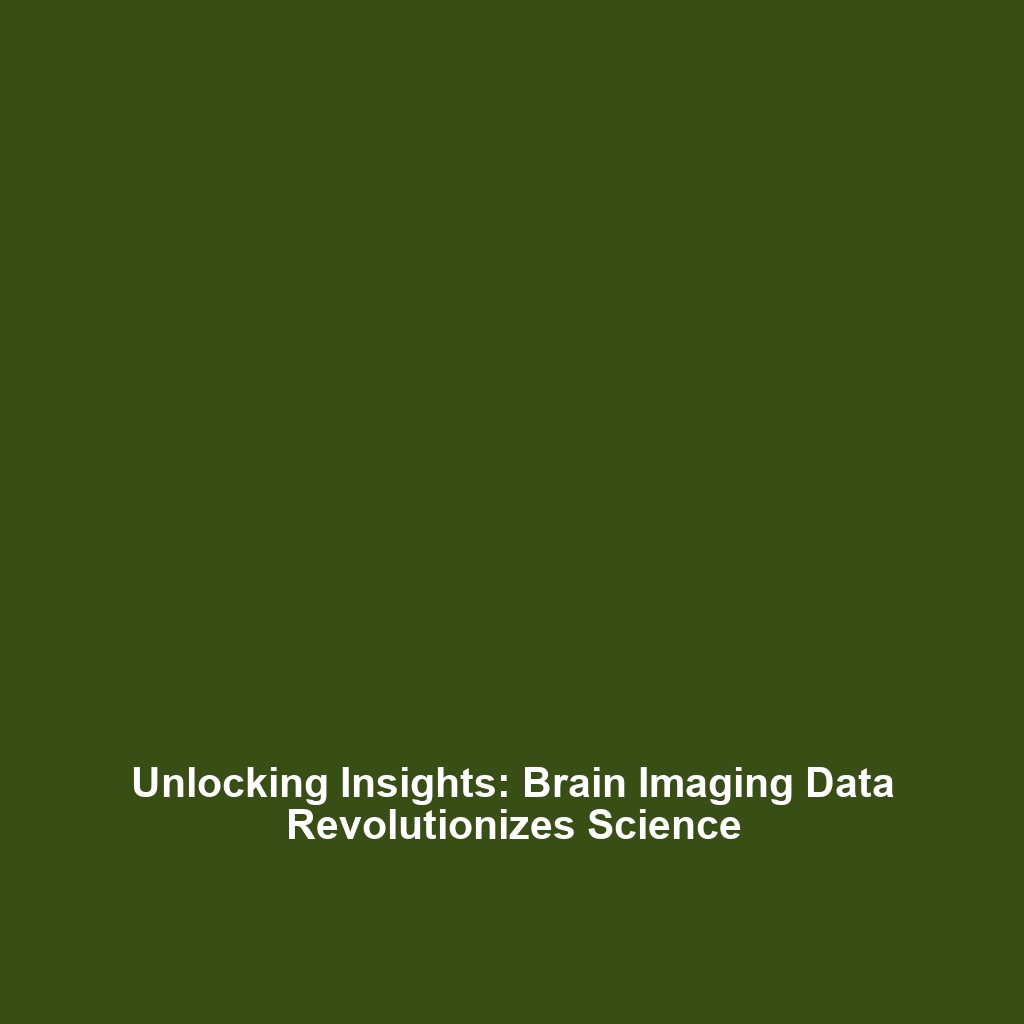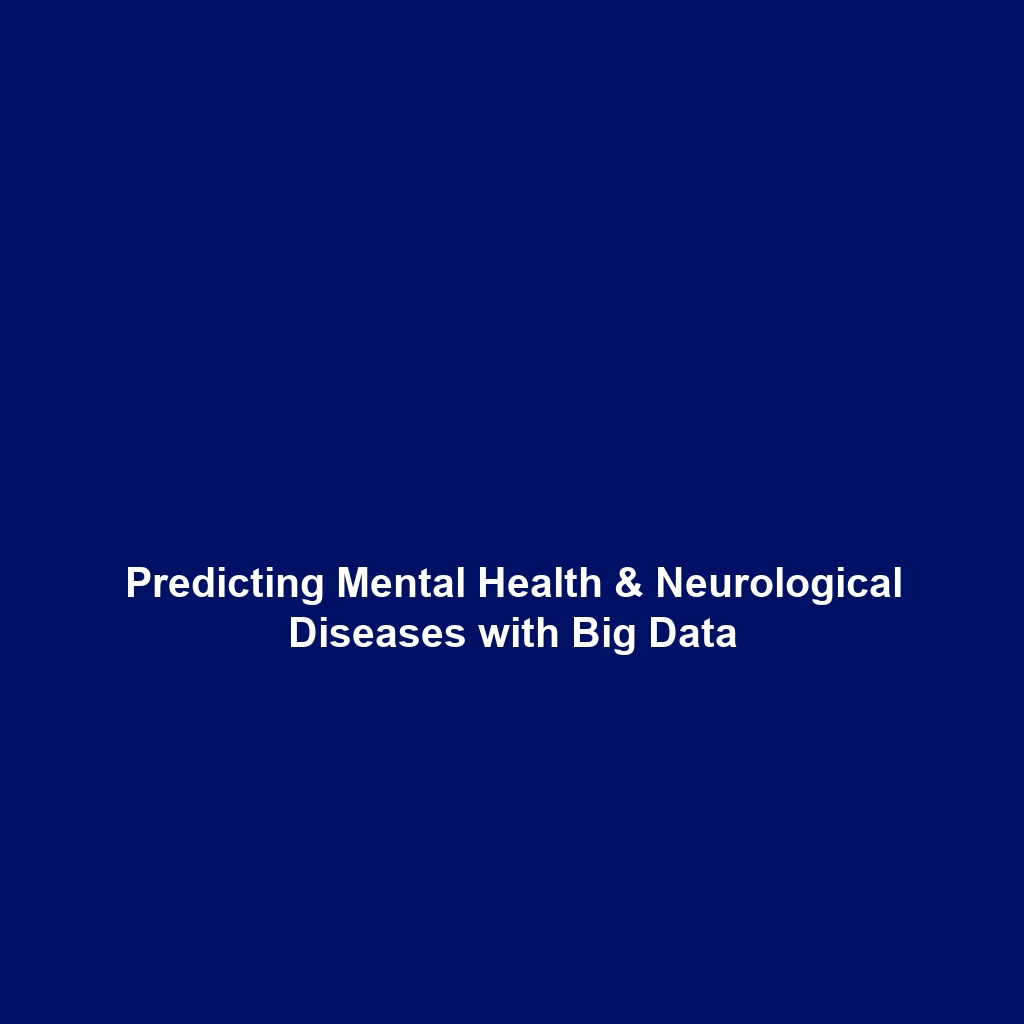Brain Imaging Data: Significance and Applications in Big Data Science
Introduction
Brain Imaging Data plays a crucial role in the evolving landscape of Big Data in Science. This vast and complex data is garnered from various neuroimaging techniques, allowing researchers to explore neural structures and functions with unprecedented detail. By integrating Brain Imaging Data into Big Data analytics, scientists can uncover patterns and correlations that were previously elusive, enhancing our understanding of the brain. As this field continues to grow, the intersection of neuroscience and data science promises to unlock new insights into human cognition and behavior.
Key Concepts
Understanding Brain Imaging Techniques
Brain Imaging Data encompasses a variety of neuroimaging techniques, including:
- Magnetic Resonance Imaging (MRI)
- Functional MRI (fMRI)
- Positron Emission Tomography (PET)
- Electroencephalography (EEG)
Integration with Big Data
The integration of Brain Imaging Data into the Big Data framework allows for:
– Enhanced data mining techniques to extract valuable insights.
– Usage of machine learning algorithms for predictive analysis on neurological disorders.
– Cross-referencing with genetic and behavioral data to aid in comprehensive studies on mental health.
Applications and Real-World Uses
Brain Imaging Data has numerous applications within Big Data in Science, notably:
- Diagnosis of Neurological Disorders: How brain imaging is used in clinical settings to diagnose conditions such as Alzheimer’s, Parkinson’s, and multiple sclerosis.
- Research on Mental Health: Applications of neuroimaging in identifying anomalies in brain structures linked to psychiatric conditions.
- Development of Neuromarketing: Utilizing brain scans to analyze consumer behavior, improving marketing strategies.
Current Challenges
Despite its advantages, studying and applying Brain Imaging Data faces several challenges:
- High costs associated with advanced imaging technologies.
- Data privacy concerns, particularly in the context of patient information.
- Interdisciplinary integration between neuroscience and data science remains complex.
- Limited standardized protocols for data handling and analysis.
Future Research and Innovations
Future research in Brain Imaging Data is set to revolutionize Big Data in Science through:
- Next-gen imaging technologies that provide real-time imaging capabilities.
- AI-driven data analysis that enhances predictive analytics in brain studies.
- New collaborative platforms for sharing and analyzing data across institutions.
Conclusion
Brain Imaging Data is not only pivotal in advancing our understanding of the human brain but also serves as a critical component of Big Data in Science. As we continue to navigate its challenges and embrace future innovations, further research will yield significant breakthroughs in neuroscience and related fields. For further exploration of this topic and related technologies, consider reading about neuroimaging advancements and big data analytics in healthcare.

